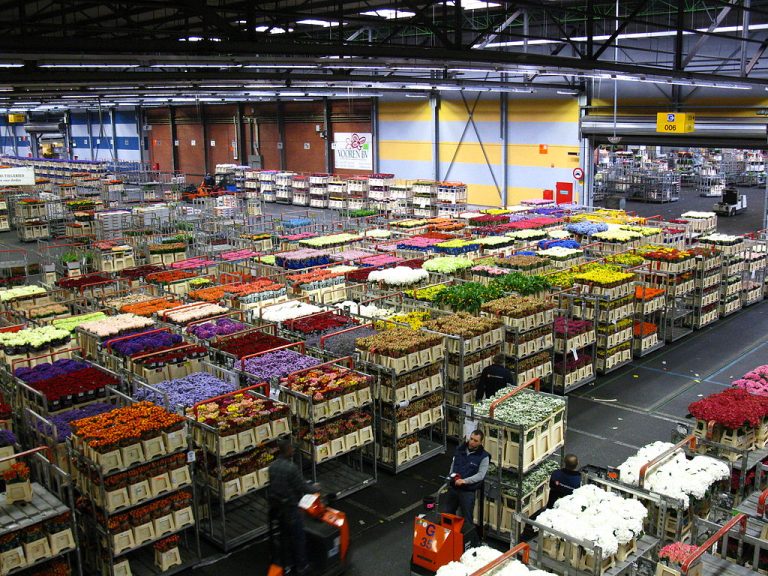
Photo: Orangée: Wikimedia Commons
The South African and international flower industries are in dire straits due to market closures and limited international flights as a result of the coronavirus disease (COVID-19) global pandemic.
Matie Taljaard, owner of Kanetberg Flora near Riversdale, said the industry had just about come to a standstill.
READ Inside SA’s biggest orchid business
“The impact of the virus is massive. Our main market is [the Netherlands] and they have just about closed, [and] are throwing flowers away. The Chinese market is still open, but have drastically reduced prices because of the European market closures.
“But even so, there is a shortage of international flights and all the agents are closed due to the shutdown, so we can’t get our flowers there. Local flower markets are also closed since they are not an essential service.”
Francois Prins, chairperson of Cape Flora, agreed that flower export markets were under pressure and the Cape flora industry was struggling.
“Most of our business focuses on the export market, and at this stage there isn’t one. Since February we have seen declines as the Chinese New Year, which typically sees high flower sales, was not good [for business], Valentine’s Day was a non-event, and in March the Multiflora market crashed for the first time in 109 years, as did the flower market in [the Netherlands].
“Locally, transport limitations are making sales difficult, so all farmers can do is look after what they have on the land and try to keep their workers busy.”
Taljaard said that while Kanetberg Flora was not yet in the peak harvesting period, he could only keep the flowers on the land for another month before they would become spoilt.
“Other producers are not so lucky and are in the process of harvesting.”
He said he sent his 20 full-time employees home on paid leave, and only the necessary maintenance was being performed on the farm.
READ The tough business of flower production
“[It is] a labour-intensive industry and we can’t function without income. We will get to a point where we can’t pay our [workers] anymore if the shutdown continues beyond the 21 days. I foresee big problems with cash flow going forward, especially since prices are so low, and will remain so even after all the markets have opened. It will take a long time for the European markets to recover economically to the point where flower sales will increase.”
Prins added that the only light at the end of the tunnel was that the industry was not currently in its peak season.
“We hope that by July everything will be stabilised again, as this is the start of our peak season, which lasts until October. If we miss this window we will be in trouble.”
The flower industry in the EU, and the Netherlands in particular, has also been severely affected by the global pandemic.
“The loss is huge,” Michel van Schie, spokesperson for Royal FloraHolland, the world’s largest flower clearing auction house based in Aalsmeer in the Netherlands, said in a statement.
According to Reuters, the total production value of flowers across the EU amounted to around €20 billion (about R400 billion) per annum, which made up approximately 44% of global flower and pot plant production, with the bulk of this production taking place in the Netherlands.
The consumption value in the EU amounted to approximately €48 billion (R958 billion) per year.
“At the moment, we have only 30% of our normal turnover, and […] this is the busiest period of the year,” Van Schie said.
Daily sales in March often surpassed the €20 million (R400 million) mark, continuing strong into the Easter holiday period and in the run-up to Mother’s Day in May.
He added that “problems became acute on 13 March as flight cancellations and bans on public gatherings in many countries meant nearly a quarter of flowers at the auction that day went unsold and were literally thrown out”.
“[The] next Monday it was 50%, and then we had to take measures. We said to our growers ‘please reduce your supply’ because otherwise it has to be destroyed.”












